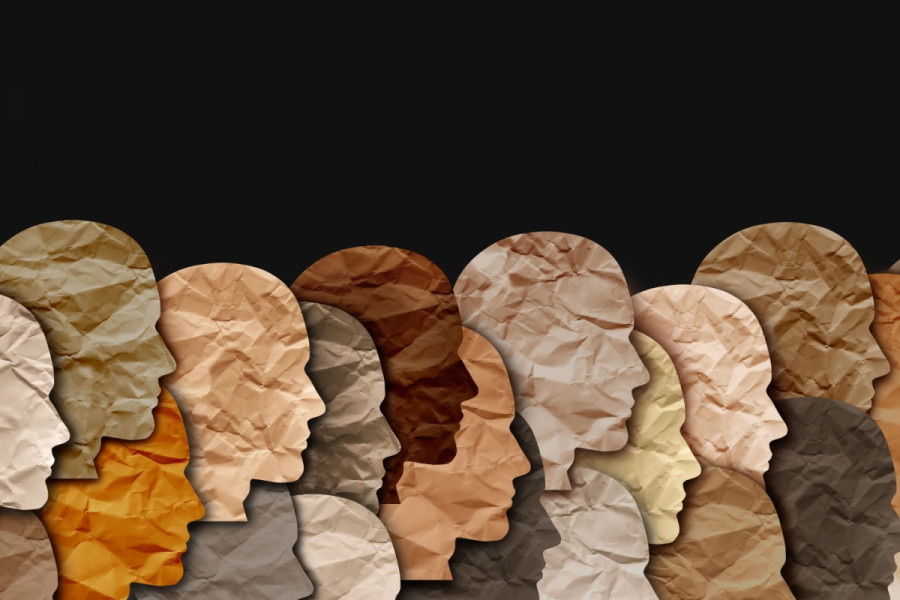Columns
A liberal argument against identity politics
Simply recognising the dignity and liberty of all should be enough to solve our issues.
Pravat Kafley
The rise of authoritarian leaders and politics around the world is often attributed to the rise of extremely harsh and judgmental identity politics currently motivating the political left. Whether it is Donald Trump in the USA or Marie Le Pen in France, commentators insist, these leaders would have never gained such widespread appeal had it not been for the reactionary thrust provided by identity politics.
I see a similar trend, albeit on a smaller scale, playing out in Nepal’s politics and fear that it might not be too long before we get our own Trump, eager to exploit the divisions currently at play. Identity politics, with its singular focus on group interest based on race, ethnicity, gender, and religion, among others, tends to shoehorn every issue through the narrow prism of victim vs. victimiser (us vs. them). In doing so, it sows division among groups by emphasising differences, and to a dangerous extent, advocates in favour of an ahistorical person cut off from society at large.
As a political doctrine, identity politics takes a sledgehammer where a scalpel should suffice, and “deconstructs” the culture largely by second-guessing history and historical characters. Like Marxism and Communism before it, identity politics tends to divide societies between binary camps of oppressed and oppressors, with no room for human mistakes, and no regard for epistemic humility. When everything is seen through the prism of power and oppression, no relationship is spared, resulting in the undoing of civic tranquillity.
Political liberalism
Instead of identity politics, the doctrine of political liberalism, with human dignity and liberty as its functional engine, should drive our politics. The clearest articulation and application of human dignity and freedom as a political actuality, rather than a theoretical abstraction, was laid out by Thomas Jefferson in his Declaration of Independence, written as a battle cry against England. In the document that reverberates worldwide even today, Jefferson wrote that “all men are created equal, that they are endowed, by their Creator, with certain unalienable rights, that among these are life, liberty, and the pursuit of happiness.” Although Jefferson stated that “these truths” are “self-evident”, in reality, his declaration was merely aspirational and did not include women and African Americans in his own country. Despite the apparent hypocrisy, the document revolutionised human history, heralding an era of rights-based liberal order in the West which put human dignity and liberty at the centre of political affairs.
The doctrine of political liberalism stems from the centrality of human dignity and liberty and entails the established political processes to secure them. Among other things, the tenets of liberalism, distilled over a long period in history, protect the individual from arbitrary and capricious laws, offer both substantive and procedural legal due process, support individual and economic liberty, secure equality under the law, guard the private life against public interference, and most importantly, offers a space for dialogue and discussion where the interlocutors are not afraid to speak their mind. That is one reason why Mayor Balen’s atrocious actions of depriving the street vendors of their rights, property, and by extension, their pursuit of happiness, without due process of law is such a grave violation of liberal politics and amounts to violence on a liberal conscience. Enforcement of laws should not come at the cost of forgoing due process.
Whereas liberalism offers an objective set of legal and customary rules developed over centuries of trial and error, identity politics, on the other hand, displaces individual dignity with group feelings and demands an amorphous and subjective standard that varies from person to person. At its core, identity politics is undemocratic and antithetical to the liberal order because it is not based on any set of rules or laws but on subjective group feelings, which by definition, are difficult to pin down. Identity Politics is inherently divisive, and, when taken to its extreme, is a huge burden on the country’s institutions, which are already lacking in institutional capacities.
Note, however, that this argument is only against identity politics forming the basis of our political and social affairs. The idea is misguided, but the people—the individuals—have many legitimate historical grievances that call for our attention. Those grievances need to be filtered through the legal system of the country. For that, the legal system must not only be fair and efficient but also must be accessible to everyone.
My preference for liberalism, however, doesn’t absolve liberalism of its excesses. Alexis De Tocqueville, one of the first exponents of democracy, feared that a “self-absorbed” and “self-interested” individual would lose connection with the society at large resulting in the fraying of the social fabric. He believed that an “atomised” individual—exclusively pursuing his or her self-interest—would be easy to control by what he termed as “soft despotism,” a power that satisfies individual needs but doesn’t allow for human flourishing. Runaway individualism tends to make us forget that our conscience—of who we are as a people—is determined by our place in a particular moment in history and our connection with society at large, including both the people who came before us and the ones who will come after us. Identity politics is an ugly iteration of liberalism that launches a destructive frontal attack on not only the statues, culture, and history, but also the ties that bind us as citizens of a country.
Lastly, liberalism offers spaces for cooperation through dialogue precisely because it does not start from a place of cynicism and bitterness. Liberalism does not impute bad faith on the interlocutors because it helps us recognise that as humans, we are all flawed beings trying our best to better ourselves. There is no need to divide people any further, no need for further “deconstruction” of what is already a battered culture. The simple act of recognising the dignity and liberty of all—and adjusting our legal system to effectuate that process—should be enough to solve our issues.




 13.12°C Kathmandu
13.12°C Kathmandu















